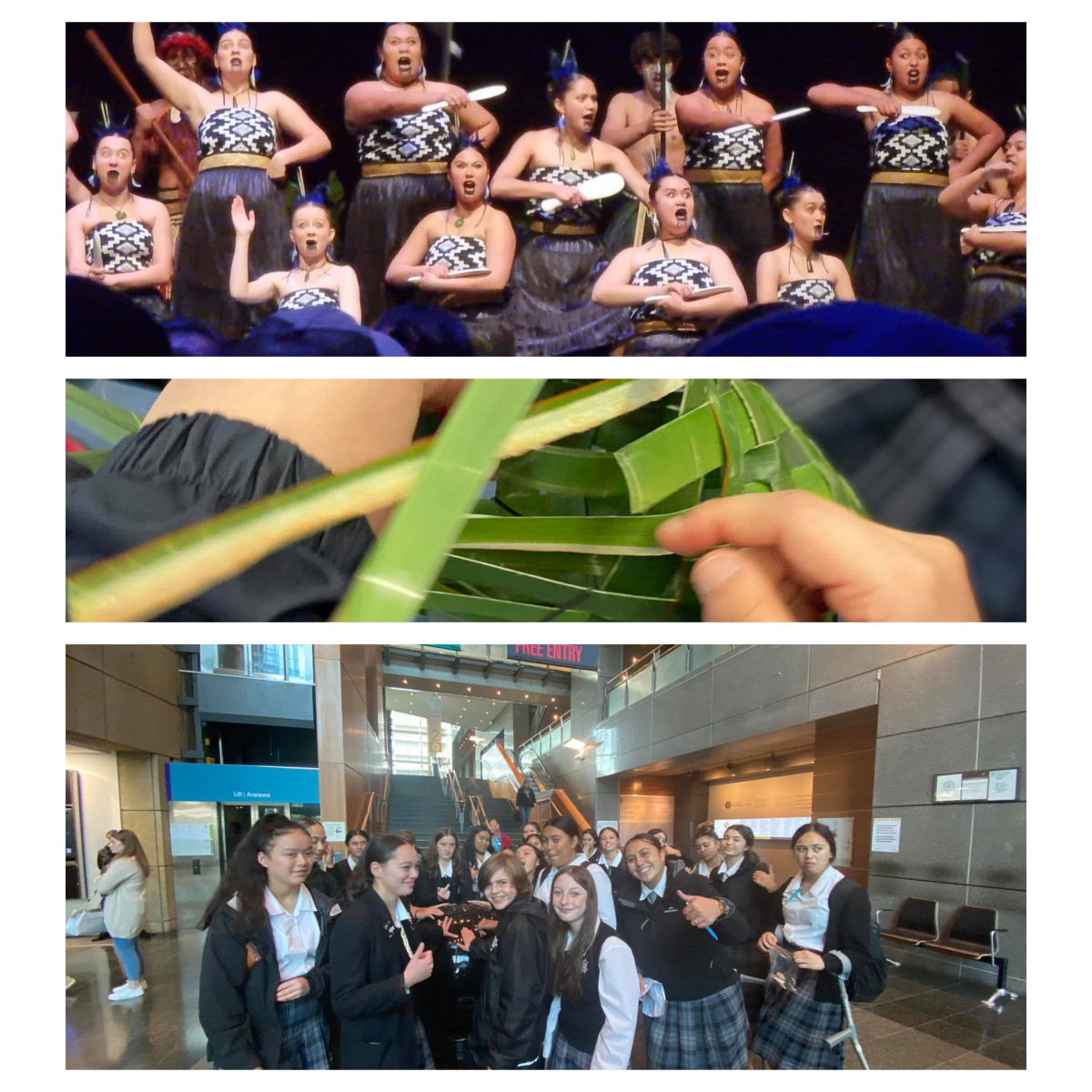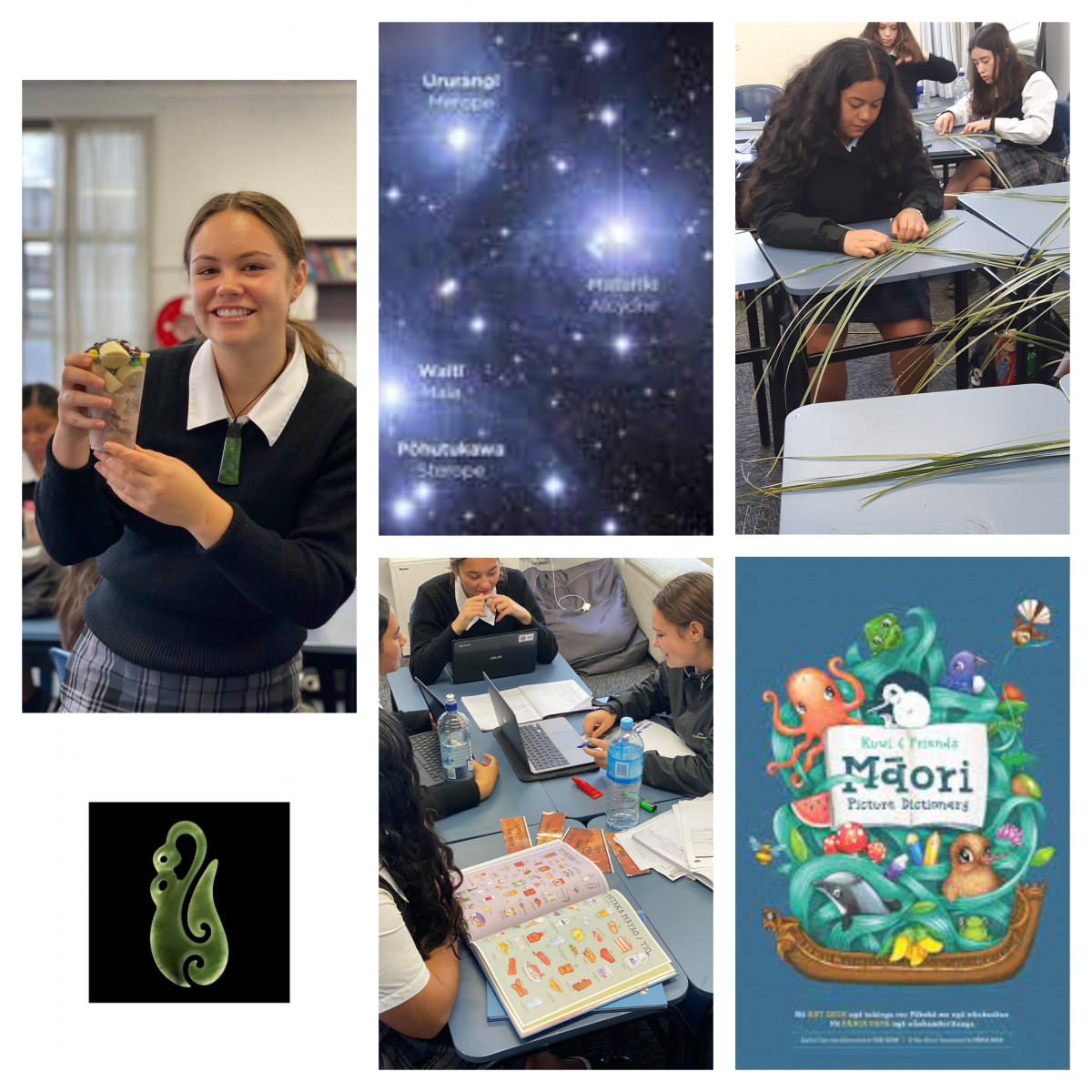
Year 10 Te Reo Māori
10TRM Subject DescriptionTeacher in Charge: Y. Navarro.
Recommended Prior LearningYear 9 Te Reo Māori

In Year 10, the focus continues on listening & speaking te reo Māori, with increased exposure to reading, writing & presenting. At the end of the course, ākonga should be able to talk about routines, habits, travel, feelings, past events, and express opinions. The Education Outside the Classroom (EOTC) aspect of Te Reo Māori, as it relates to kaupapa Māori, continues as practicable.
The course is based on the Whāinga Paetae (achievement objectives) at Levels 3 - 5 of the NZ Curriculum. If you'd like to know more about these, go to 'Useful Links' at the bottom of this page.

Subject Overview
Term 1
Unit 1: Haerenga ki te Tāone - Going to Town
- Give and follow directions
- Present tense
- The destination - past/present/future
- The purpose of your trip
- Modes of transport
- Cost of something
- Actor emphatic
Term 2
Unit 2: Mānawatia a Matariki
- Pūrākau
- 'A' and 'O' category
- Location
- How to describe things
- Negations
- 'Āhea' and 'Ināhea' (When?)
Term 3
Unit 3: Tuhinga Auaha - Creative Writing
- Conventions of creative writing
- Past location
- Statives
- Passives
- Asking and saying who something is for
Unit 4: He Toa Reo Māori - Māori Champions
- Learn & research the history of te reo Māori in Aotearoa
- Māori language heroes
- Create a biographical poster
Term 4
Unit 5: Ngā Tikanga o te Marae
- The roles that different people have on a marae
- Permission and agreement
- Past activities, events, habits and routines
- Feelings and opinions
- Compare and contrast people, places and things
- Mihimihi
Pathway
According to Careers NZ, "It's helpful to have knowledge of te reo Māori for jobs such as policy analyst, reporter, editor, librarian or CEO. It’s important to be able to pronounce Māori names and places correctly if you’re a news reader, or television or radio presenter. For jobs such as Kaiwhakaako Māori (Māori medium school teacher), interpreter or translator, you must be fluent in te reo Māori." In terms of small business, "The Ministry for Business, Innovation and Employment estimates the Māori economy to be worth $40-$50 billion in 2018, and that figure is growing. Most iwi businesses are in agriculture, forestry or fisheries, but you could also find your dream job in the related legal, marketing, management and science fields, or in one of the many small-to-medium Māori enterprises."
Visit this link https://www.canterbury.ac.nz/media/documents/careers-internships-and-employment/brochures/Careers_Kit_TereoMaori.pdf to see an extensive list of careers where being a reo Māori speaker is an advantage.
Animator/Digital Artist, Actor, Copywriter, Anaesthetist, Archivist, Art Director (Film, Television or Stage), Historian, Artistic Director, Film and Video Editor, Barrister, Audiologist/Audiometrist, Author, Tattoo Artist, Midwife, Urban/Regional Planner, Elected Government Representative, Journalist, Graphic Designer, Communications Professional, Interpreter
Contributions and Equipment/Stationery1 x 1B5